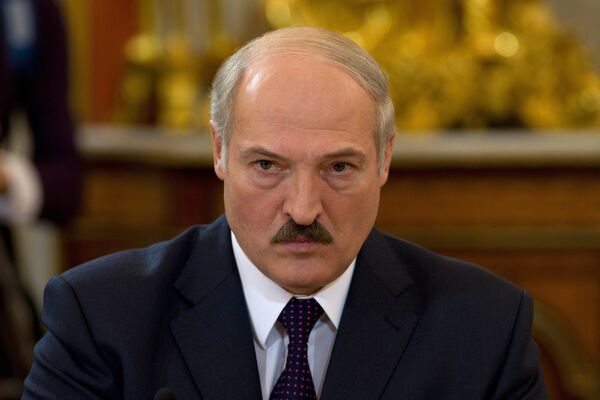Belarusian President Alexander Lukashenko said on Tuesday he will clamp down hard on anyone caught protesting against an export ban on fuel and certain goods, imposed to protect the country's floundering economy, the Belta news agency said.
Belarusian police suppressed on Sunday and Monday small protests on the Belarusian- Polish border on Monday against the export of fuel, various foodstuffs and white goods, arresting and fining participants.
"Our svyadomyya [opposition] is calling through Internet social networks, for protests, protests on the border," Lukashenko said. "I will watch, watch and then strike, so they do not manage to run away across the border."
"[They] organize protests because they were not allowed to export fuel, cigarettes and other goods for nothing. Before, we used to call them speculators. And they are speculators."
International demand for Belarusian products began falling in 2009. Belarus' economy had survived for many years thanks to Russia's low tariffs for oil supplies to Belarusian refineries, but Russia introduced a 100 percent tariff on most oil and oil product exports in 2010.
That tariff, coupled with wage increases ahead of last year's presidential elections, triggered a financial crisis in Belarus.
The Belarusian ruble has come under severe pressure in the first five months of the year from a large trade deficit, generous wage increases and loans granted by the government ahead of the December 2010 presidential elections, which spurred strong demand for foreign currency.
In spring, the country's authorities devaluated the national currency by 36 percent, froze prices on some staple foods and introduced fuel rationing to keep the lid on the deepening crisis.




